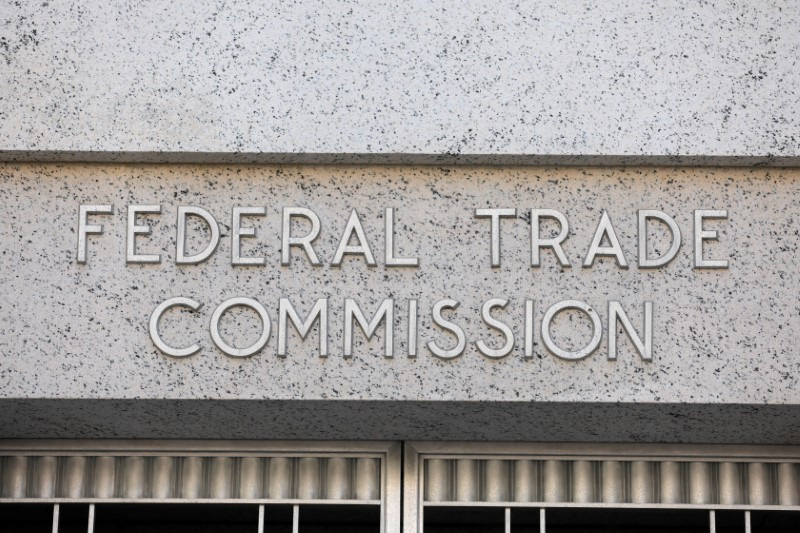By Siddharth Cavale
NEW YORK (Reuters) -The U.S. Federal Trade Commission urged a federal judge in New York to block Tapestry (NYSE:TPR)'s $8.5 billion merger with rival handbag maker Capri Holdings (NYSE:CPRI) at a trial on Monday, arguing it will eliminate fierce head-to-head competition in the market for "accessible luxury."
The FTC argues the merger announced in August 2023 would eliminate head-to-head competition between Tapestry's Coach and Kate Spade brands and Capri's Michael Kors' brands, which has resulted in better prices, discounts and promotions for consumers and wages and workplace benefits for employees.
The deal would also give Tapestry a dominant share of the "accessible luxury" handbag market, controlling over 50% of it once the deal is completed, the FTC said. The regulator defined the "accessible luxury" market as handbags sold between $100 and below $1,000, which forms most of Coach and Kors' lines.
During the first day of trial, which was attended by Henry Liu, Director of the FTC's Bureau of Competition, the antitrust regulator sought to use the companies' own internal emails against them, while the defense tried to poke holes in the way it defines the "accessible luxury" market.
Tapestry lawyer Lawrence Buterman countered that the FTC's view doesn't reflect the "commercial reality" of the handbag market where customers are inundated with choice in that price range.
"The commercial reality is that customers have a Gucci bag lined up next to a Kors bag, lined up next to a Calvin Klein bag," he said.
The FTC's market definitions are also a key issue in its case to block supermarket chain Kroger (NYSE:KR)'s acquisition of Albertsons (NYSE:ACI), currently in trial in Portland, Oregon.
MONITOR 'EVERY MOVE'
In her opening statement, FTC Chief Trial Counsel Nicole Lindquist told U.S. District Judge Jennifer Rochon that the brunt of a Tapestry and Capri merger would be borne by "the working and middle class women of America," by reducing competition and innovation and raising prices.
The FTC presented emails showing how Capri's CEO John Idol and his team closely monitored Coach's pricing to stay competitive.
"Look at these prices!" Idol wrote in one of the emails after browsing Coach's outlet website. Idol urged his deputies to come up with better designs and solutions to compete against Coach. In another email produced by the FTC, Idol asks to talk to a deputy about the design of a Coach handbag.
"They monitor and react to each other's every move," said Lindquist, the FTC lawyer.
Capri's lawyer said that Michael Kors has been losing relevance since 2016, and that growing competition had reduced the average price of a Kors handbag to $92, below the FTC's threshold for accessible luxury.
Philippa Newman, President of Accessories and Footwear for Michael Kors, also testified on Monday saying this loss of relevance has led it to lose retail customers like Nordstrom (NYSE:JWN) and discontinue product lines.
She explained that one reason for discontinuing the Parker handbag line was that, despite its high quality, akin to a "Rolls Royce (LON:RR)" of handbags, (the Kors customer) "only wants to pay for a Fiat."
The case marks a busy September for the FTC, which is also challenging how Alphabet (NASDAQ:GOOGL)'s monetizes advertising through a system that prosecutors say harms news publishers.

Monday's trial is expected to last for a week and a half, featuring witness testimonies from Tapestry CEO Joanne Crevoiserat and designer Michael Kors over the coming days.
The trial follows the merger's approval by antitrust regulators in Japan and the European Union earlier this year.